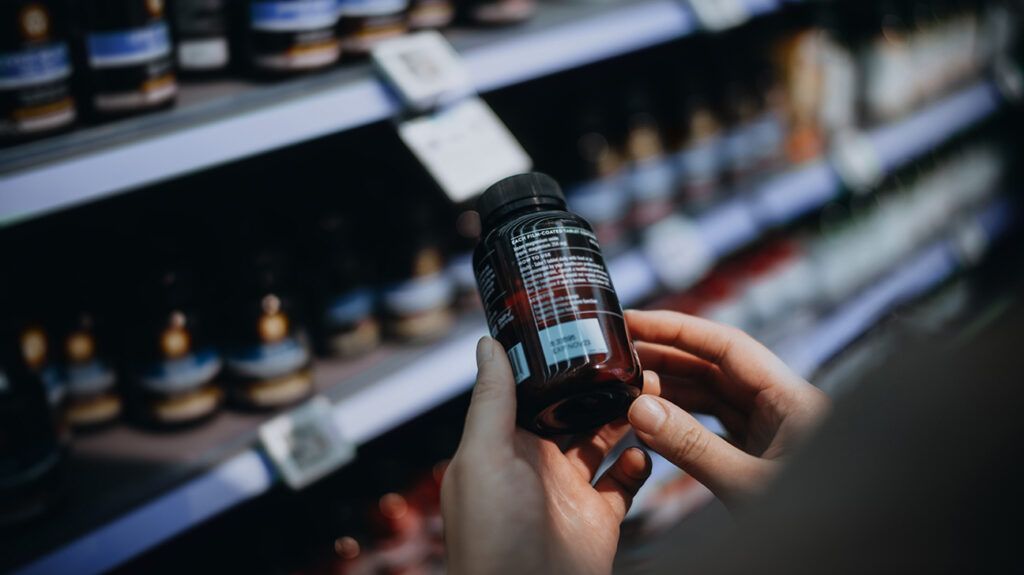Your brain and gut share a direct line of communication. This could be good news for your anxiety because taking probiotics may help.

Have you ever felt a fluttery feeling in your stomach before a presentation? That’s your brain sending signals to your gut to get it ready for a fight or flight response.
Your gut microbiome, an ecosystem of bacteria and other microorganisms that live in your digestive tract, may affect many areas of your physical and mental health. Researchers are actively looking into how it works to better understand the relationship.
Probiotics may help keep your gut microbiome healthy, which, in turn, may have a positive impact on your anxiety and other areas of mental health.
The gut-brain connection,
The connection goes in both directions. This means that the health of your gut flora may have an impact on many areas of your physical and mental health.
Probiotics are supplements containing microorganisms that also live inside the body and help keep it healthy. The digestive tract is a hot spot for this good bacteria, with many different types living in the large intestine.
Probiotics may help keep the gut microbiome balanced, which might impact the gut-brain axis.
While scientists know some about this, they still do not fully understand how the connection works. According to a 2020 review of studies, researchers found that the majority of evidence looking at the gut-brain axis involves animal studies instead of humans.
The study notes that more research is needed to better understand how this connection works.
Researchers
As scientists gain more insight to how this works, you may find that doctors and therapists recommend improving your gut health to help with:
- anxiety
- depression
- other mental health symptoms
Probiotics may help improve the overall health of the gut microbiome. Since scientists know this has a link to the brain, it may help with mental health. However, no one really knows how much it will help or how exactly it would work.
In a
They cited the need for additional controlled studies to determine if probiotics are effective for the treatment of anxiety.
Another
The same results have not yet been shown in human studies, though future research may help prove it or other probiotic effectiveness for anxiety.
A study from 2019 showed some promise for the use of probiotics in treating anxiety. The researchers found that colony-forming units (CFU) probiotics have therapeutic potential in treating anxiety.
Another study from 2019 also noted potential positive effects of probiotics on depression and anxiety symptoms. They noted though that the number of studies so far is limited, which means additional studies are needed to prove probiotics have a positive effect on anxiety.
More evidence from 2020 also suggests that probiotics and prebiotics can have a positive effect on mental health conditions. Finally, a study from 2021 also notes positive effects of probiotics on anxiety and stress.
To sum it all up, researchers seem to believe that probiotics may help with:
- anxiety
- stress
- depression
- other mental health issues
Still, they caution that only a limited number of previous studies exist and more studies are needed.
You may find that taking certain probiotics could help you feel better in tandem with your treatment regimen.
Some strains of probiotics may be more helpful than others.
For example, some evidence
An older study from
Another older study from 2016 looked at the effects of L. plantarum on mice. They found that providing the probiotic to the mice helped to significantly increase serotonin and dopamine levels in their brains. They noted the mice showed reduced anxious behavior when completing a maze.
If you are interested in trying probiotics, a good starting point might be finding ones with any of the below:
- B. longum
- L. plantarum
Talking with a doctor or nutritionist first may be your best option to find the best probiotics for your needs and to make sure dietary or supplement changes will not interfere with your medications.
Probiotics represent a promising new treatment option if you have:
- anxiety
- depression
- other mental health conditions
Probiotics can positively impact your gut microbiome, which may then positively impact your brain.
The majority of studies indicate a need for more research to both fully understand the gut-brain axis and how probiotics may affect your anxiety symptoms.
Most studies have shown promise that probiotics can positively impact your mental health. You should not stop any meds for anxiety without talking with a doctor.
Your next steps may include:
- consulting with a doctor or nutritionist about adding probiotic supplements for anxiety or depression
- discuss your current treatment plan with a doctor if you do not feel like it’s effective for your needs
- continue with your prescriptions and only add probiotics as a potential supplement once checking with a doctor first (to make sure it will not interact with any of your medications)
